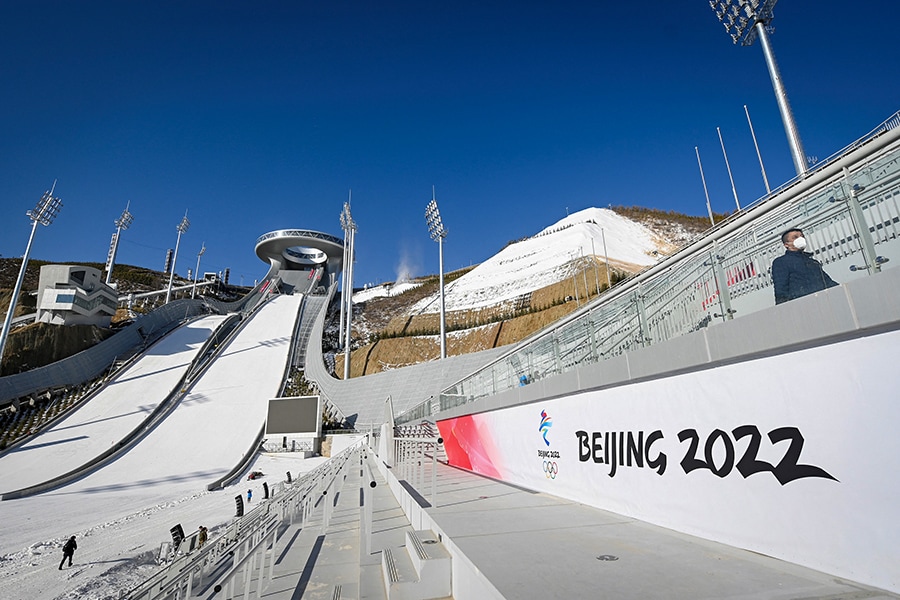
The Winter Olympics are under threat from climate change
According to a recent US study, only one of the 21 past host cities would be able to host the competition in optimal conditions by the end of the century
 Olympic fans are looking forward to the 2022 winter edition, which will open on February 4 in Beijing. (Image: Photography WANG Zhao / AFP)
Olympic fans are looking forward to the 2022 winter edition, which will open on February 4 in Beijing. (Image: Photography WANG Zhao / AFP)
Skiing, bobsled, ice hockey, figure skating—Olympic fans are probably looking forward to the 2022 winter edition, which will open on February 4 in Beijing. But they may have to prepare themselves to say goodbye to some of the legendary events of this competition in the decades to come. This is the warning message of an international team of researchers from the University of Waterloo in Canada.
Published in late December, the study reviewed historical climate data from the 1920s to the present, as well as different climate change scenarios developed for the period 2050-2080. Interviews with 339 elite athletes and coaches from 20 countries were also conducted. According to 89% of them, climate change is affecting competition conditions, while 94% fear that it will have an impact on the future development of their sport.
"The world of winter sport is changing as climate change accelerates, and the international athletes and coaches we surveyed are witnessing the impacts at competition and training locations, including the Olympics," said Daniel Scott, a professor of Geography and Environmental Management at Waterloo, in a press release.
In the space of a century, the average temperature in February (the month in which the Winter Olympics are held) has risen steadily from -0.4°C between 1920 and 1950, to 3.1°C between 1960 and 1990 and to 6.3°C from the beginning of the 21st century to the present.







